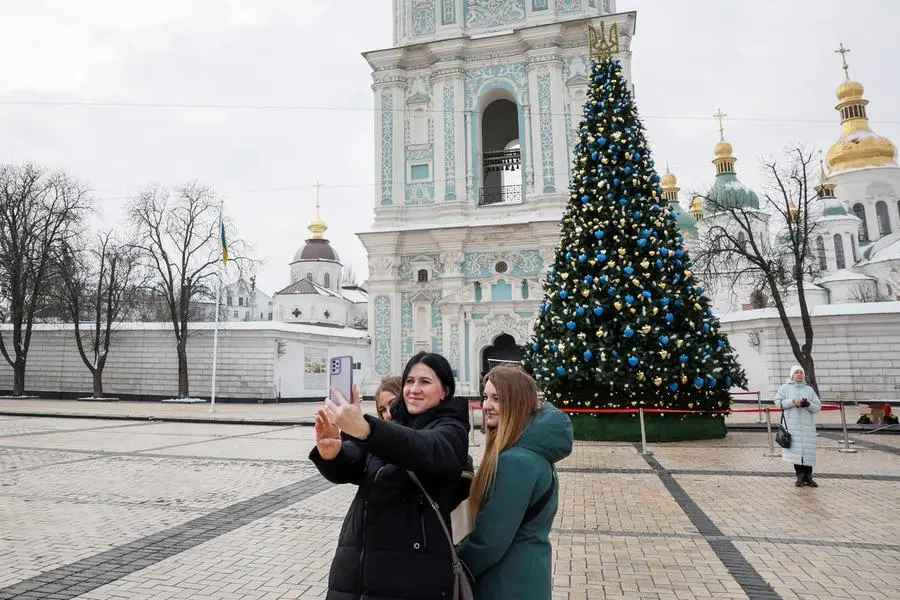PHOTO
Ukrainians are gearing up to celebrate their first Christmas according to a new calendar, another step towards erasing all traces of Russian influence as their military fends off a Kremlin invasion.
Most Ukrainians are Orthodox Christians and the country's main church agreed this year to move away from the traditional Julian calendar, which is used in Russia and celebrates the holiday on Jan. 7.
Moscow's February 2022 attack rallied the nation in defence and sparked many Ukrainians to reject the Russian language and culture, among other historical ties to Kyiv's former ruler.
"Everything that was related to Russia, and everything that Russia did the same way we did, provoked disgust among people," said Mykhailo Omelian, an Orthodox priest in Kyiv.
Ukraine has also signalled its interest in joining the European Union, and many here see membership as a crucial affirmation of what they believe is their country's historical place in Europe.
"It turns out that Ukrainians used to celebrate Christmas on December 25, just like the rest of Europeans," said Tetiana, a 25-year-old believer who said she would celebrate on Dec. 25 for the first time.
Standing outside Kyiv's golden-domed St. Michael's Monastery, she added that it would feel "a little unusual" but was "the right thing to do".
Near the front line of Russia's invasion, which is nearing its two-year mark and shows no signs of abating, soldiers were also preparing to make the switch to Dec. 25.
"Just like it was before Jan. 7 was imposed upon us," said Bohdan, a service member stationed in eastern Ukraine.
On a recent Sunday morning, Ukrainian troops crammed into a small makeshift church for a liturgy, singing hymns as incense wafted in the air.
In another front-line church, Mykolai, a chaplain from Ukraine's 95th Air Assault Brigade, said he expected troops to be in higher spirits as they celebrated.
"We basically understand that the enemy is godless, so this is just another day of war," he said.
Ukrainian authorities have also stepped up a campaign to rename streets and settlements, as well as remove statues and monuments tied to the tsarist and Soviet past. (Reporting by Stefaniia Bern and Vladyslav Smilianets in Kyiv and Vitalii Hnidyi in the Donetsk region; Writing by Dan Peleschuk, editing by Ed Osmond)





















